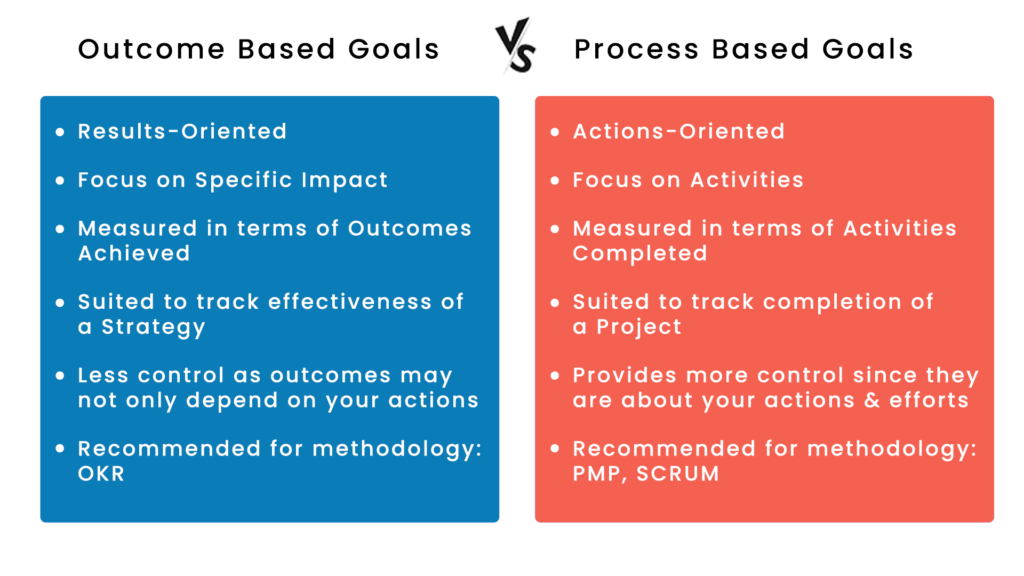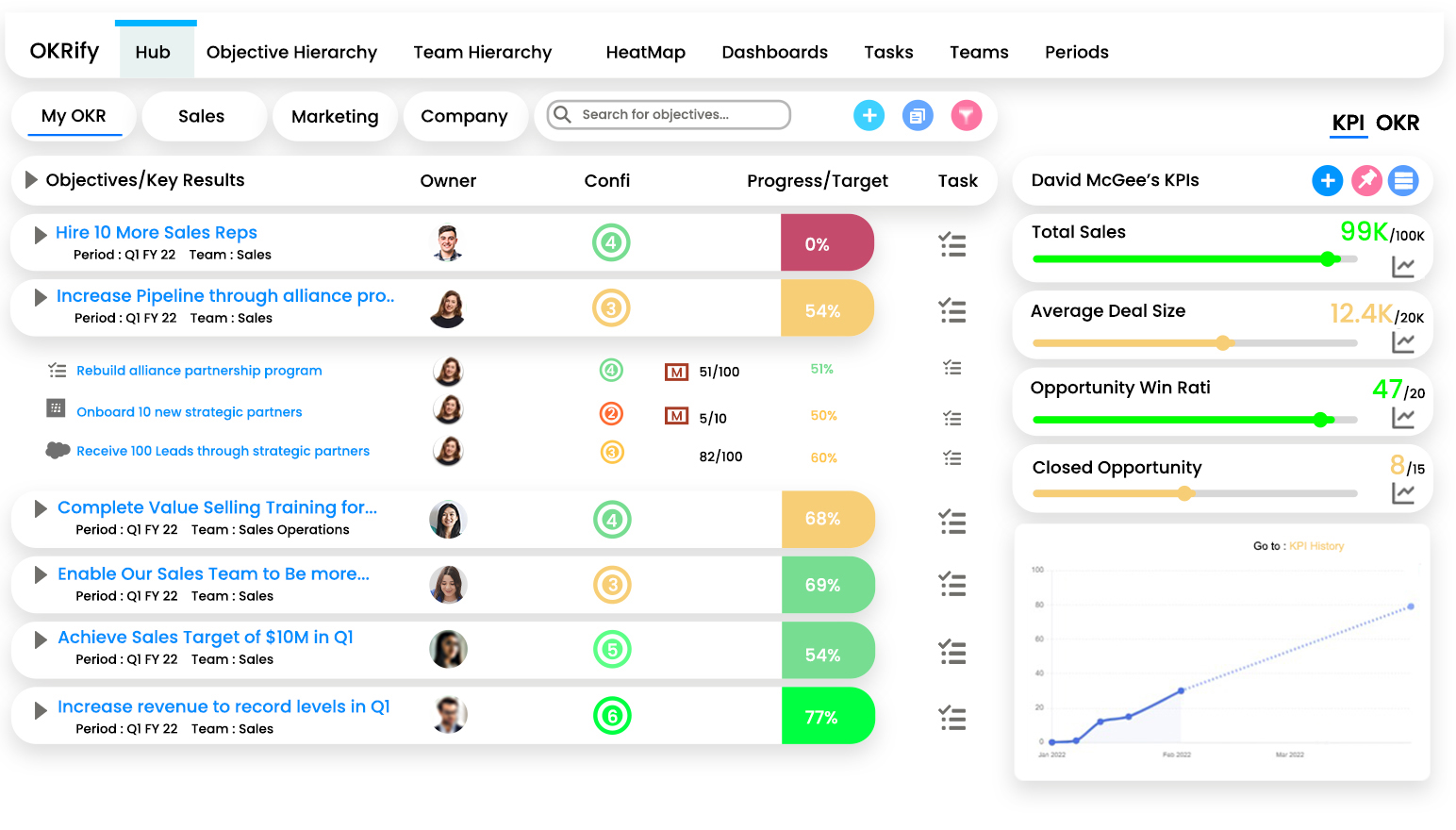Outcome-based goals and process-based goals are two different approaches to setting targets for an organization. While both types of goals can be important, they have different characteristics and serve different purposes.
Outcome-based goals are results-oriented and focus on the specific impact that an organization aims to achieve. They are defined in terms of the change that the organization wants to bring about, and they are often stated in terms of numbers or percentages. For example, an outcome-based goal for a nonprofit organization might be to "reduce the number of homeless individuals in a specific community by 25% within the next 3 years." This goal is specific, measurable, and time-bound.
Process-based goals, on the other hand, focus on the actions or activities that an organization undertakes to achieve its mission. These goals are defined in terms of the steps that the organization will take, rather than the specific results that are expected. For example, a process-based goal for a nonprofit organization might be to "conduct 10 community meetings per month to gather input on our programs." This goal is focused on the activity of conducting meetings, rather than any specific outcomes that are expected to result from those meetings.
Outcome-based goals are important because they provide a clear and measurable outcome for the organization to work towards. They also provide a way for an organization to evaluate its strategy and its impact. Outcome based goals are about measuring the impact achieved and not about measuring required to achieve the impact.
Process-based goals, on the other hand, are important because they ensure that certain activities are carried out and that the organization is moving in the right direction. These goals can also help to build momentum and create a sense of progress. Process based goals are about ensuring the planned activities are carried out.
Outcome-Based Goals: Achievement in outcome-based goals hinges on meeting or exceeding a specific result. These goals offer less control due to their dependence on external factors, beyond your sphere of influence.
Measuring outcomes is straightforward, involving an assessment of whether the desired result has been attained. The motivation for outcome-based goals often stems from the drive to realize the end goal. This can be a potent motivator, but it may also lead to frustration if results take longer than anticipated. Outcome-based goals are ideal for reaching specific, tangible results or milestones.

Process-Based Goals: Process-based goals gauge success by consistently adhering to the prescribed steps rather than focusing solely on immediate outcomes. You possess greater control over process-based goals, as they center on your actions and efforts.
These goals highlight the actions and behaviors necessary to attain a desired outcome. They concentrate on the journey, emphasizing the steps and methods required for success. Measurement in process-based goals often entails monitoring your adherence to a specific routine or action plan. The appeal of these goals lies in their capacity to keep you motivated by recognizing daily or weekly progress and accomplishments, bolstering your drive. Process-based goals prove invaluable when establishing habits, cultivating skills, or implementing routines, and they are particularly effective for sustaining ongoing behaviors.
Goal-setting and strategy execution methodology such as OKR(Objectives and Key Results) highly recommend setting outcome based goals, as OKR methodology focuses on the specific results that an organization aims to achieve, rather than the processes or activities that are used to achieve those results.
Program and project management methodologies such as PMP, Scrum, etc is focussed on process-based goals, as these methodologies are about splitting the required work into processes and activities to track the progress of the program or project.
It's important to note that, outcome-based goals and process-based goals are not mutually exclusive, they can work together, process-based goals can be used to support outcome-based goals by providing a roadmap for achieving the desired results.
In conclusion, outcome-based goals and process-based goals are two different approaches to setting targets for an organization. Outcome-based goals are results-oriented and focus on the specific impact that an organization aims to achieve, while process-based goals focus on the actions or activities that an organization undertakes. Both types of goals have their own importance, outcome-based goals provide a clear and measurable target and a way to evaluate the impact of the organization, while process-based goals ensure that certain activities are carried out and provide a sense of progress.
Free licenses and special discounts for nonprofits making this world better.
Achieve your organization's mission with OKRs
OKRs is a simple, flexible goal setting framework that can help in set clear expectations and purpose for employees & volunteers, align everyone behind the mission for focused execution.




